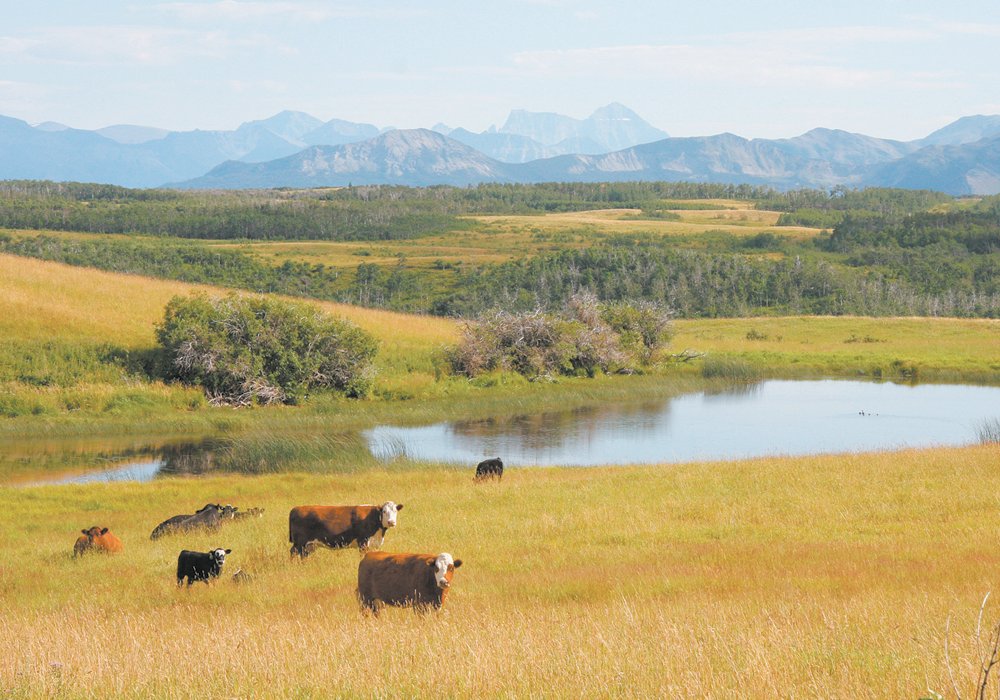Consumers get a side of carbon with their beef

Industry leaders say beef production plays an important role in carbon sequestration that is not well known by consumers
Consumers concerned about the environmental impact of greenhouse gases from Canada’s beef industry aren’t looking at the full picture, a recent webinar at the University of Calgary was told.
“We really need all of the environmental benefits to be part of the conversation,” said Kelly Smith-Fraser, who was the first female chair of Alberta Beef Producers.
Canadians must consider things “such as preservation of our grasslands, biodiversity, upcycling, carbon sequestration, as well as providing wildlife habitats — so we really need to take everything into account, not just one little snippet of one piece.”
She was one of four main speakers at a recent webinar called What’s the Beef About Beef? It was hosted by the Simpson Centre for Agricultural and Food Innovation and Public Education at the university’s School of Public Policy in partnership with the Faculty of Veterinary Medicine.
The event aimed to help consumers answer common questions about beef, which is one of Canada’s biggest agri-food imports, said a statement by the webinar’s organizers. “We will dispel some myths and bring some science and facts to the table and hopefully make your grocery shopping a little easier.”
Beef producers have made substantial reductions in greenhouse gas emissions since the 1980s by adopting innovations sparked by research, said Smith-Fraser, who is also a board member of the Canadian Cattlemen’s Association.
Native grasslands used by Canadian producers to raise cattle are also “huge sinks for carbon,” said beef producer Melissa Downing, who is the vice-chair of Results Driven Agriculture Research (RDAR) in Alberta. She estimated such areas sequester up to 81 tonnes of carbon per acre.
“And so when we’re managing our pastures for beef production, we have the opportunity to gain a lot of carbon storage that way, and it’s a really important part of what we do is managing those grasslands and pastures and any grazing lands that we have.”
However, Canadian beef producers are being lumped into what is happening elsewhere in the world, said Downing, who is also the Alberta provincial co-ordinator for Verified Beef Production Plus. It’s a national program that trains and accredits Canadian producers as certified sustainable.
There are places in the world “where there is massive deforestation happening that will release a lot of that carbon and can be very negative, but in Canada, we have a really good story to tell, so I think we need to focus on Canadian beef,” said Downing.
The speakers at the webinar were also asked about evaluating animal welfare in terms of things such as the health and happiness of Canadian cattle.
“I think what it comes down for me as a veterinarian is that I would like to move away from too much anthropomorphism,” said Karin Orsel, a professor at the Faculty of Veterinary Medicine, who is the chair of the Cattle Health Research Group.
“And really, it’s not about us thinking that the cows are happy. I think we should ask the cows whether they are happy, and I think science can provide that.”
There are auditing systems in Canada that make sure “animals are handled under a good welfare system, where we have proven that the animals have told us through collecting information on animal behaviour and welfare on how they’re experiencing the system, so I would say that we do have scientific measures to know that animals are in good welfare.”
Source: producer.com

